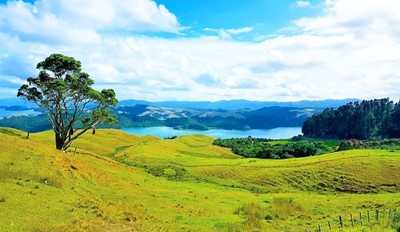Vet breaks glass ceiling, Young Farmer of the Year

A US city-boy, all of 25, relocated to a farm at Waikouaiti, Otago, New Zealand.
I took over the day-to-day running of my partner’s family farm of 1200 sheep, straight from a spell in Covid isolation, via 3 years working in Florida, 4 years at Kentucky University, and 18 years in Cincinnati, Ohio.
When it came to farming, I was green, like the rolling paddocks I now call home. But it was the fluffy, white bobs everywhere that blew me away. I had never seen a sheep in my life before coming to New Zealand. Give me horses and Bourbon, Kentucky-style, and I would be right at home. But all that wool walking around on the bright green grass was a little … startling.
These past six months I have learned a thing or two, as you can imagine. Thrown in the deep end! The learning curve has been difficult to accept, at times. Most New Zealand farmers have been bought up as children on their family farms and work instinctively. Not me. I have had to learn everything the hard way.
Take John (his real name), my partner’s father, who, this day, was introducing me to the intricacies of fencing. We had some wild pigs break through the boundary netting at the back of the farm and we needed to make it stock-proof again. I was feeling appreciated for my growing contribution to the farm as I was obviously doing my share of the work. Perhaps a bit high and mighty after being on the farm for a few months having already mastered a wide range of farm skills. I parked the bike up after rolling the netting off the trailer. Away to work we went and when we finished the job, we came back, and John noticed that our bike and trailer were missing. We found it through the fence at the bottom of our neighbour’s paddock. Bugger. More fencing required. John took it all in his stride. I expected to lose driving privileges for some time.
Something that has blown me away in my time so far on the land, is the amount of knowledge John and Gay have (John is a part-time farmer while Gay, my partner’s mother, is full-time farming on a second small family farm). I had no idea there were so many arts involved in the production of meat and wool before seeing it first-hand. It’s easy to think that the animals do all the hard work, while you sit back and collect the profits. I suspect a lot of Kiwis don’t know what is involved either.
The approach to farming in New Zealand is, I suspect, one of the most progressive, forward-thinking in the world today. It is easy to get lost in the problems besetting farming, but I want to pay respect to all the great work that is done in the rural community of this country. We are well ahead in our approach, if you compare us to other sheep and beef farmers around the world, on many relevant issues. This by no means gives us an excuse to rest on our laurels, but it is easy to lose sight of how good we are at food and fibre farming on an international scale.
From my keen observation, John and Gay care about their land and animals, there can be no doubt. It is their livelihood, and they care about that. They also gave up a legal practice and part of a medical practice to dedicate to farming. They mean to do it well, or not at all. They focus on soil health and testing, planting and protecting their native trees around the farm, as well as looking after their natural spring water. They are professionals in the true sense of the word.
For me personally it is exciting every day to learn a new lesson on the farm. I never know what chance awaits me in the day ahead.
If I had one lesson to impart from my humble experiences so far on a New Zealand farm, it would be –
… put the handbrake on the motorbike, or else make sure there’s no one there to laugh at you as you tear down the hill to inspect the damage.